Saeed Jalili's opposition to the acceptance of the Financial Action Task Force (FATF) recommendations has emerged as a critical issue in the snap presidential election debates in Iran.
Acceptance of FATF recommendations, along with the ongoing crisis of international sanctions, has been one of the most pervasive issues in Iran's foreign relations for more than a decade.
The impact on the domestic situation and the daily lives of Iranian citizens is significant.
Abandoning the rules of these recommendations has made it difficult for Iran's banks and official financial institutions to conduct financial transactions, even with neighboring countries.
As a result, Iranians and the government are forced to bear multiple costs for money transfers or foreign purchases, often resorting to exchange offices and non-transparent monetary exchanges.
During the election debates, Mostafa Pourmohammadi, a candidate with a long history in security agencies, revealed that Jalili prevented the acceptance of the FATF recommendations during a Supreme National Security Council meeting in 2016, one year after the JCPOA agreement was implemented.
At that time, Pourmohammadi was the Minister of Justice in Hassan Rouhani's government and a member of the Supreme Anti-Money Laundering Council.
Although not a member of the Supreme National Security Council, he attended the meeting due to the agenda's relevance to anti-money laundering regulations.
Pourmohammadi recounted that Jalili refused to accept FATF's recommendations, saying that he opposed their implementation because he "did not trust" Rouhani and his government.
During the debate, which was broadcast on the state television of the Islamic Republic, Pourmohammadi said, "I remember in the Supreme National Security Council in 2016, I spoke in detail about FATF's problems. At the end of the meeting, [Jalili] said, 'If you are in charge, we accept it, but we don't accept the other gentlemen.'"
During the debate, Jalili, who was present on stage, did not reject the issue.
In another program, he implicitly confirmed it by saying, "The FATF itself and Mr. [Ali] Tayebnia [then Minister of Economy in Rouhani's administration] said that we have implemented 41 clauses, and we are implementing 39 of them, and then you say that things are not progressing."
While it is true that 39 out of 41 FATF recommendations have been implemented, Jalili avoided mentioning the remaining two crucial clauses.
These two recommendations involve the acceptance of the "Convention on Combating the Financing of Terrorism" and the "Convention on Combating Transnational Organized Crime."
Both were approved by the Parliament but rejected by the Guardian Council.
The Expediency Discernment Council of the Islamic Republic, of which Jalili is a member, has stalled these resolutions, preventing their implementation.
These conventions are key components of FATF’s recommendations aimed at preventing money laundering by organized crime gangs.
Jalili's opposition to these two conventions has significantly impacted Iran’s financial relations.
Iran’s government has struggled to implement these recommendations due to Jalili's stance, which has left Iran’s banks and financial institutions unable to conduct transactions even with neighboring countries, forcing reliance on non-transparent monetary exchanges.
These measures were taken before the United States withdrew from the nuclear deal in 2018.
Following the nuclear deal implementation, the FATF welcomed the lifting of financial and banking sanctions on Iran and temporarily removed its name from the blacklist, giving the Islamic Republic a chance to include these 41 recommendations in its laws.
The FATF is a non-governmental organization that assists banks, financial institutions, and governments in fighting money laundering by setting international regulations to prevent the financing of global criminal groups involved in activities such as kidnapping, human trafficking, the illegal arms trade, drug trafficking, and the promotion and development of terrorism.
Jalili and his associates argue that given the Islamic Republic's financial support for militant groups in the region, such as Hezbollah in Lebanon and various proxy groups in Iraq, Syria, Yemen, Pakistan, Afghanistan, and some African countries, joining the two conventions could expose Tehran's financial dealings with these groups.
This concern has led them to block the adoption of these crucial FATF recommendations, despite the significant implications for Iran’s international financial relations and domestic economic stability.
Supporters of the two conventions during the Rouhani administration countered Jalili's argument, asserting that Iran's payments to militant groups often involve cash and traditional methods.
They argued that rejecting the conventions would effectively cut off Iran from international financial transactions, making it impossible for Iranian banks and financial institutions to operate internationally.
Amid domestic disputes in Iran, Donald Trump withdrew from the 2015 nuclear deal, severely limiting Iran's half-term financial links with global financial institutions.
After several warnings, the Financial Action Task Force (FATF) subsequently added Iran to the "list of countries subject to increased monitoring."
This designation advises governments and financial institutions worldwide to block financial exchanges with Iran and its banks, even non-governmental interactions.
As a result, Iranian banks and private financial institutions that managed transactions post-nuclear deal withdrawal faced severe limitations.
Engaging in international financial transactions through money changers and cash involves heightened risks of sanctions, prosecution, and accusations of terrorism financing.
This situation contrasts starkly with the more secure and efficient practices available to other nations.
President Rouhani likened this predicament to regressing to the Qajar dynasty, an era in Iran's history marked by antiquated financial practices predating modern banking institutions.
Iran's election debates made it clear that the decision to "take Iran back to the Qajar dynasty era" was influenced by Saeed Jalili, appointed by Ali Khamenei to the Supreme National Security Council, Expediency Discernment Council and the Strategic Council of Foreign Relations, along with Jalili's associates in Iran's decision-making institutions.












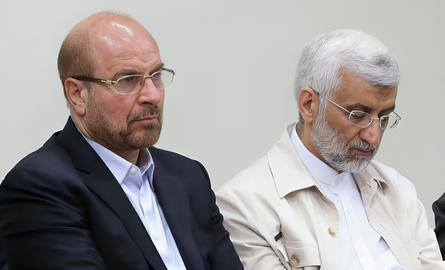





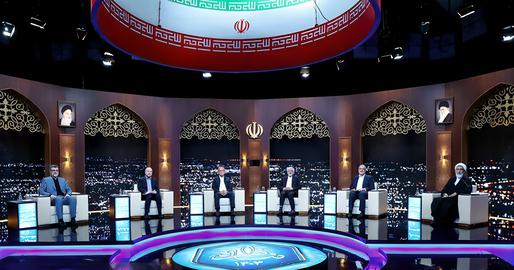
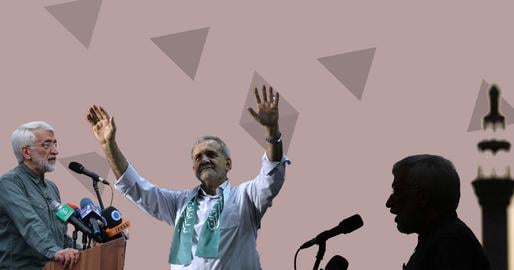
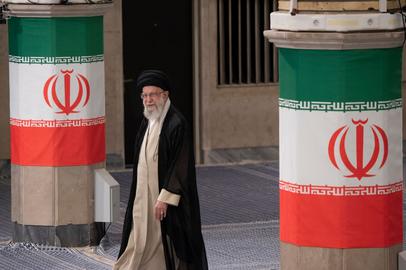

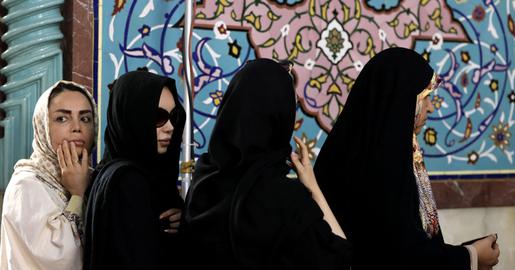



comments